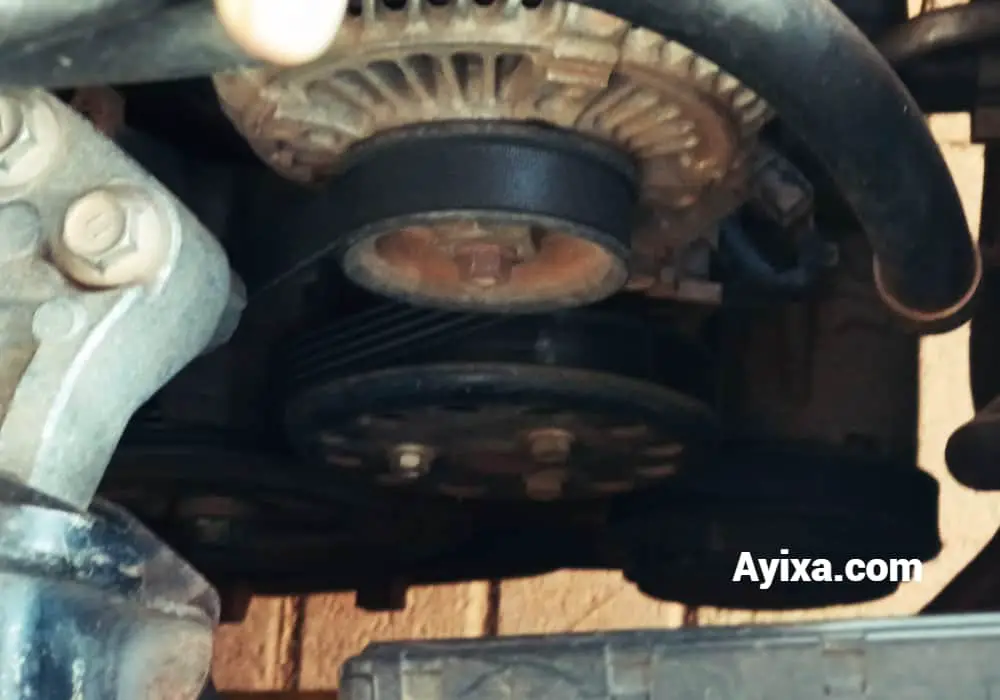You fitted a new voltage regulator in the alternator recently and after driving a few hundred miles, the battery charge light comes on.
On checking further, it’s the voltage regulator that’s damaged, and it’s one of several that you’ve had to replace clearly a sign that there’s an underlying fault that’s yet to be resolved.
What causes the alternator voltage regulator to keep burning out? Where should you even start looking to fix the underlying fault permanently?
If you’re frustrated by a car alternator that keeps failing because of burnt-out regulators then read on. In this post, you’ll find the likely reasons why the alternator voltage regulators keep burning out, and what you can do to get the alternators working reliably again.
Alternator Voltage Regulators Keep Burning out – Likely Causes
While there are several possible reasons why your car alternator’s regulators may keep burning out, these are some of the more common ones you should look at.
#1. Check the alternator ground wire connections are both clean and firmly connected. Loose alternator wire connections can cause the alternator voltage regulator to fail.
Therefore, double-check the wire connections from the alternator positive and ground connections.
Check that the wire connections, both the positive and ground connections are clean and firmly connected.
You can confirm that the alternator connections are firm by measuring the alternator’s positive and negative voltage drops (see steps below).
Using Voltage Drop Measurements to Confirm Alternator Ground Connections
What you need: A good quality multimeter set to read DC voltage
Steps
- With the multimeter set to read DC voltage, connect the positive lead of the multimeter to the alternator case or ground connection and the negative lead to the alternator battery’s negative connection.
- Next, start the car engine and rev it to about 2000 RPMs, while holding the RPMs, switch on the car headlights and radio. Take a reading of the voltage drop. The voltage drop should be up to 0.2 V or less for a well-grounded alternator.
If higher, inspect, clean, and make sure that the ground wire connections are clean and firm.
Check that there are no broken ground wire connections too. It is possible to have a ground wire whose insulation is intact but the wires underneath are broken or only held by a few wire strands.
#2. Always use OEM recommended or aftermarket regulators to replace the damaged ones. Cheaper and poor-quality voltage regulators are prone to failure and can be the reason why the voltage regulators keep burning out.
#3. Bad alternator handling practices such as disconnecting the battery while the alternator is running or connecting the alternator voltage output B+ terminal to the ground wire when the alternator is running.
Either of these actions can damage the alternator voltage regulator and other components.
Signs of a Damaged Voltage Regulator
These symptoms may point to a damaged or burnt-out regulator. That being said, they are not in themselves confirmatory and additional tests may need to be done to confirm that it is indeed the voltage regulator that is burnt out.
#1. The charging voltage from the alternator (measured across the battery terminals) is extremely high. If the voltage is 15V and higher then there’s a problem with the alternator’s voltage regulation.
The car battery voltage should be in the range of about 13.5 – 14.5V when the engine is running.
#2. Charging by the alternator is intermittent and not consistent. You’re probably more likely to observe this if the car has got an inbuilt volt meter.
The voltmeter reading may sometimes be in the recommended 13.5-14.5 V range, only to drop to much lower levels at idle or randomly.
As noted above, this is not necessarily a bad regulator issue. It could as be caused by loose contacts or wire connections too.
#3. The battery charging light does not come on at all with the ignition set to the on position and the engine not running. While this may point to a defective regulator, it could as well be a case of a blown fuse, burnt-out light, loose wire connections, or others.
Closing Thoughts
If the alternator voltage regulators keep burning out, confirm that the alternator positive and ground connections are clean and firmly connected.
Always use OEM recommended or aftermarket voltage regulators with genuine 4 or 5-star reviews. Lastly do not disconnect the car battery when the engine is running or short the alternator output terminal.
Recommended Posts
